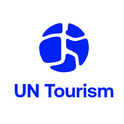Climate-friendly initiatives and actions essential for tourism, says UNWTO

Madrid, Spain – The Secretary-General of the World Tourism Organization (UNWTO), Zurab Pololikashvili, called for the tourism sector to take more action to combat climate change and biodiversity loss during the 30th joint meeting of its Commissions for South Asia and Asia-Pacific in Fiji (18-20 June 2018).
Adding his voice to that of the host country, Mr. Pololikashvili advocated for stronger partnerships and incentives for governments, businesses and crucially tourists themselves to make a difference in climate action efforts. He also made clear that sound policies must be built upon accurate evidence, requiring the tourism sector to better measure its impact on sustainability - while acknowledging progress has been made in this regard, including UNWTO's development of a statistical framework to measure sustainable tourism.
The remarks were made as part of a regional seminar on how tourism impacts upon sustainable development efforts in the region and globally, held as part of the meeting in the Fijian city of Nadi. The seminar featured deep dialogue on how tourism policies, partnerships and investments can tackle climate change and biodiversity loss.
This was the first Joint Commission meeting held in a Pacific island nation. The meeting and seminar highlighted the need for developing island countries to collaborate on actionable policies, with measurable results, to address climate change and biodiversity protection within the tourism sector. UNWTO also pledged to raise further awareness of climate change's impacts and effects on tourism through capacity building and educational opportunities.
About UN Tourism
The World Tourism Organization (UN Tourism) is the United Nations agency responsible for the promotion of responsible, sustainable and universally accessible tourism.
As the leading international organization in the field of tourism, UN Tourism promotes tourism as a driver of economic growth, inclusive development and environmental sustainability and offers leadership and support to the sector in advancing knowledge and tourism policies worldwide.
Our Priorities
Mainstreaming tourism in the global agenda: Advocating the value of tourism as a driver of socio-economic growth and development, its inclusion as a priority in national and international policies and the need to create a level playing field for the sector to develop and prosper.
Promoting sustainable tourism development: Supporting sustainable tourism policies and practices: policies which make optimal use of environmental resources, respect the socio-cultural authenticity of host communities and provide socio-economic benefits for all.
Fostering knowledge, education and capacity building: Supporting countries to assess and address their needs in education and training, as well as providing networks for knowledge creation and exchange.
Improving tourism competitiveness: Improving UN Tourism Members' competitiveness through knowledge creation and exchange, human resources development and the promotion of excellence in areas such as policy planning, statistics and market trends, sustainable tourism development, marketing and promotion, product development and risk and crisis management.
Advancing tourism's contribution to poverty reduction and development: Maximizing the contribution of tourism to poverty reduction and achieving the SDGs by making tourism work as a tool for development and promoting the inclusion of tourism in the development agenda.
Building partnerships: Engaging with the private sector, regional and local tourism organizations, academia and research institutions, civil society and the UN system to build a more sustainable, responsible and competitive tourism sector.
Our Structure
Members: An intergovernmental organization, UN Tourism has 160 Member States, 6 Associate Members, 2 Observers and over 500 Affiliate Members.
Organs: The General Assembly is the supreme organ of the Organization. The Executive Council take all measures, in consultation with the Secretary-General, for the implementation of the decisions and recommendations of the General Assembly and reports to the Assembly.
Secretariat: UN Tourism headquarters are based in Madrid, Spain. The Secretariat is led by the Secretary-General and organized into departments covering issues such as sustainability, education, tourism trends and marketing, sustainable development, statistics and the Tourism Satellite Account (TSA), destination management, ethics and risk and crisis management. The Technical Cooperation and Silk Road Department carries out development projects in over 100 countries worldwide, while the Regional Departments for Africa, the Americas, Asia and the Pacific, Europe and the Middle East serve as the link between UN Tourism and its 160 Member States. The Affiliate Members Department represents UN Tourism's 500 plus Affiliate members.
UNWTO Communications Department
+34 91 567 8100
UN Tourism
